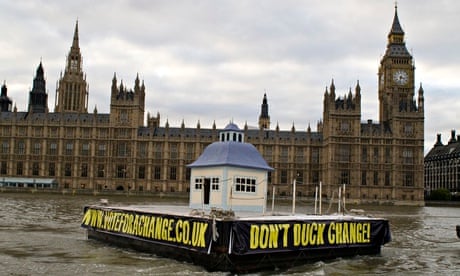MPs are under fire over their expenses once more after it emerged they claimed more last year than at the peak of the expenses scandal, while a quarter employed family members with public money.
Despite the furore of the expenses scandal just five years ago, MPs claimed £103m in 2013/14 – up from £98m the previous year and slightly more than they did at the high watermark of £102m set in 2008/09. Higher staffing spend is one of the reasons that MP expenses claims have started rising since they were brought down when a tougher system was introduced in the wake of the scandal.
In new figures, the parliamentary watchdog revealed that almost 170 MPs employed relatives or partners – a slight increase since last year. MPs are allowed to employ family members as secretaries, researchers or caseworkers on salaries of up to £50,000 a year – despite frequent calls for the practice to end. Many argue that employing a relative is essential because MPs need staff they can trust and it can help keep their family together when they have to split the week between Westminster and their constituency.
Conservative backbenchers Peter Bone and Christopher Chope are two of the highest claimers, disclosing salaries for their wives in the bracket of £45,000 to £50,000. Some of the cabinet ministers who employ relatives include Patrick McLoughlin, the transport secretary, and Michael Fallon, the defence secretary.
The Independent Parliamentary Standards Authority (Ipsa), which disclosed the figures, said its reforms since the expenses scandal had saved £58m over four years. The watchdog also pointed out that figures for the most recent year would not be higher than in 2008/2009 if inflation were taken into account.
"Constituents can see exactly what their MP spent in carrying out their parliamentary duties. Such is the progress made since the scandals which came to light in 2009 that our work is now attracting the attention of parliaments around the world," said Sir Ian Kennedy, the Ipsa chair.
The new data comes at a controversial time for Ipsa, which has proposed an increase in salaries for MPs of around 10% – a move opposed by David Cameron and the other party leaders.
Andy Silvester, from the Taxpayers' Alliance, said: "Taxpayers will be deeply concerned that the cost of Westminster is going up again. David Cameron specifically pledged to reduce the cost of politics after the excesses of the expenses scandal, and politicians must be held accountable for their promises. Combined with the ever increasing number of peers in the House of Lords, that promise looks increasingly difficult to keep.
"There's nothing wrong with employing family members if they're qualified for the job, but there needs to be total transparency whenever that's the case."
The expenses scandal of 2009 sparked outrage as some politicians claimed for trivial items and played the system to get taxpayer cash for furnishing two homes. After the scandal broke, MPs' claims fell to around £95m, or £88.5m excluding winding-up costs, as parliament brought in an independent watchdog.

Comments (…)
Sign in or create your Guardian account to join the discussion